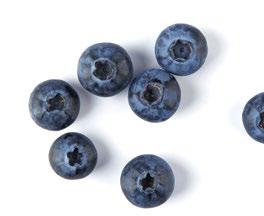
4 minute read
QUENCH YOUR SKIN
By Mpho Masenya
When we think about skin, we generally judge by aesthetics. Supple and hydrated skin is thought to signal good overall health, while dull, thirsty skin can pinpoint an underlying imbalance.
Advertisement
Physiologically, the skin has three primary functions:
Protection The skin is our ‘defender’ - a protective barrier against substances, harmful chemicals and allergens. Additionally, the skin shields the body from the harmful effects of UV rays and prevents excessive water loss.
Thermoregulation The skin regulates body temperature via sweat and hair. It also has a biochemical task to store vitamin D.
Sensation The skin is the ‘sense-of-touch’ organ, as it has a network of nerve cells that sense and transmit changes in the environment. Skin-to-skin contact has proven to be healing mentally, emotionally and physically.
Let’s Talk Facial Skin The state and appearance of our facial skin effects our wellbeing, confidence and self-esteem. Facial skin is thinner than the rest of the body - especially around the eyes – and is in direct contact with the sun and UV rays, which accelerate age-related skin changes such as thinning, sagging, wrinkles and age spots.
Skin Types and Conditions There are four main skin types – normal, dry, oily and combination. These can be affected by numerous skin conditions, such as sensitivity, reactivity, maturity and, most notably, dehydration. Dehydration Dehydration is common throughout the year. It is a condition that can affect all skin types - even oily skin. Dehydrated skin characteristically looks dull, and can reveal premature ageing signs such as surface line wrinkles and loss of skin firmness. Hydrated skin, on the other hand, looks young, more supple and replenished.
Dehydration can be triggered by physiology, climate and nutrition.
Physiology The skin becomes dehydrated when there’s a water deficiency. Another reason could be a modification of the protective film that covers your skin - the hydrolipidic film - which consists of perspiration, water, sebum and lipids. A healthy film controls dehydration, tightness and dryness.
Weather Every change in season impacts your skin, as it thrives when the temperature is consistent. As the skin adapts to each season, it has to work harder - and this can take a toll on its health and appearance. Additionally, higher temperatures can be challenging for the skin, as humidity results in oilier skin, and sweating creates more pimples. In the winter months, lower temperatures result in a loss of hydration, which is evident in both the cracks found within the outer skin layer, and in inflammation.
The Food We Eat Dehydration can also be a product of the food we eat. A balanced diet supports continuous hydration. The worst thing that you can do for your skin, dehydrated or not, is not to eat enough. The skin needs protein and fat to stay hydrated.
Is your skin dehydrated? Try the pinch test:
- Pinch a small amount of skin (such as on your cheek or the back of your hand) - Hold for a few seconds - If your skin snaps back, you’re probably not dehydrated. - If it takes a few moments to bounce back, you could be lacking in hydration.
The good news is that dehydration is not a permanent state, and can be rectified.
Water Our skin is made of 64% water. Water inhibits sagging, reduces wrinkles, flushes out toxins and moisturises your skin. Ensure that you drink at least two litres a day. Add lemon to your water to accelerate hydration and help the body to detoxify.

Essential Hydrating Vitamins Dehydrated skin can be alleviated through the intake of vitamins C and A. There are many hydrating foods such as watermelon, a good source of vitamins A and C, which you should include in your skin-loving diet. Spinach, broccoli and sweet potatoes are also great sources of vitamin A, which promotes natural moisturising and hydrating. Vitamin C-rich blueberries, cucumbers and citrus foods are both hydrating and known to boost collagen production, and coconut water is high in potassium, a great natural hydrator.

Hydrate Your Skin with Lipids A fresh salad consisting of avocado (monounsaturated fatty acids and vitamin E), salmon (omega 3 fatty acids and vitamin E) and olive oil (oleic acid and vitamin E) can positively affect your skin, as vitamin E has moisturising benefits and strengthens the skin’s barrier function.
Dehydrating Foods and Beverages to Limit
Some foods draw moisture out of the skin, making it dry and exacerbating the appearance of fine lines and wrinkles. It is best to limit these foods: - Caffeine - Alcohol - Carbohydrates - Sugar - Salt - Fried foods TIPS TO KEEP YOUR SKIN HYDRATED ALL YEAR ROUND
- Exfoliate at least once a week
- Use a humidifier in your home to moisten the air
- Use cool water to wash your face
- Know your skin type, and choose products suitable for your unique needs
- Modify your skincare routine depending on the season
- Always moisturise













